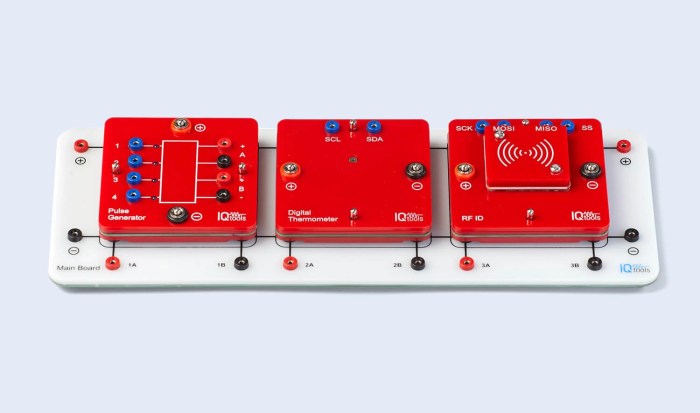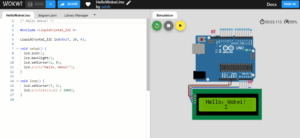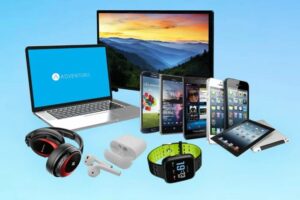Microcontrollers are compact integrated circuits designed to govern specific operations within an embedded system. They are critical components in electronics, enabling control over various devices and processes. With their ability to process inputs and generate outputs, microcontrollers are the backbone of countless applications, from household appliances to advanced robotics. In beginner kits, microcontrollers serve as the central unit that allows novices to experiment and learn about programming and electronics.
Beginner kits typically include microcontrollers that are user-friendly and come with extensive documentation to facilitate learning. Most of these kits feature popular microcontrollers like Arduino, Raspberry Pi, and ESP8266, which are widely recognized for their versatility and ease of use. These microcontrollers often come pre-programmed with basic functionalities, enabling beginners to dive into projects without needing to write extensive code from scratch.
Popular Microcontroller Kits for Beginners
When starting out in the world of electronics, selecting the right microcontroller kit is paramount. Below are some of the most popular beginner microcontroller kits available in the market, each with unique features tailored for novice users:
- Arduino Starter Kit: This kit includes an Arduino board, a collection of sensors, and components like LEDs and motors. It is prized for its extensive online resources and community support.
- Raspberry Pi 400 Personal Computer Kit: This kit features a Raspberry Pi integrated into a compact keyboard. It’s ideal for learning programming and is equipped with ports for various peripherals.
- Elegoo Mega 2560 Starter Kit: Known for its affordability, this kit includes a Mega 2560 board and an array of components. It’s particularly suitable for hands-on projects.
- ESP8266 WiFi Module Kit: This kit is perfect for those interested in IoT projects. It includes an ESP8266 module that allows you to connect devices to the internet.
Each of these kits is competitively priced, typically ranging from $50 to $150, depending on the included components and board specifications. The choice often comes down to the user's project goals and preferred programming languages.
Essential Components of a Beginner Microcontroller Kit, SHOP MICROCONTROLLERS FOR BEGINNER KITS
A well-rounded beginner microcontroller kit typically includes several essential components. Each component plays a specific role in facilitating learning and experimentation. Below is a detailed overview of key components, their functions, and examples:
| Component | Function | Examples |
|---|---|---|
| Microcontroller Board | The brain of the kit, executes the programmed instructions. | Arduino Uno, Raspberry Pi |
| Sensors | Detect environmental changes and send data to the microcontroller. | Temperature, humidity, and motion sensors |
| LEDs | Indicate output signals or project visual feedback. | Standard LEDs, RGB LEDs |
| Resistors | Limit current flow and protect components. | 1kΩ, 220Ω resistors |
| Breadboard | Provides a platform for assembling circuits without soldering. | Standard breadboard |
Each component is integral to the learning process, allowing beginners to explore concepts such as circuit design, programming, and data handling.
Benefits of Starting with Microcontroller Kits
Using microcontroller kits provides numerous advantages for beginners venturing into electronics and programming. These kits simplify the learning curve by offering predefined circuits and comprehensive guides. Some notable benefits include:
- Hands-on experience that reinforces theoretical knowledge through practical application.
- Access to a vibrant community where learners can share projects and seek support.
- The ability to create a variety of projects, from simple LED blinkers to complex robotic systems.
For example, a common first project is building a simple temperature monitoring system using a sensor and an LCD display. Testimonials from users highlight the excitement of seeing their code bring circuits to life, fostering a deeper understanding of the underlying principles.
Getting Started with Your Microcontroller Kit
To embark on your microcontroller journey, follow these steps to set up your beginner kit effectively:
- Unbox the kit and organize all components.
- Refer to the user manual to identify the microcontroller board.
- Connect the board to your computer via USB for programming.
- Install the necessary software (IDE) for coding.
- Start with a basic example project provided in the software.
For your first project, consider creating a simple LED blink program. Essential tools and materials needed include:
- A computer with internet access
- USB cable for connecting the board
- Basic electronic components from the kit
Learning Resources and Communities
A wealth of online resources is available for those looking to expand their knowledge of microcontrollers. Websites like Arduino's official site, Raspberry Pi documentation, and forums such as Stack Overflow and Reddit's electronics community offer valuable insights and support.
Books such as "Getting Started with Arduino" and "Raspberry Pi Cookbook" are excellent for those who prefer structured learning. Additionally, video tutorials on platforms like YouTube provide step-by-step guidance on various projects, enhancing the learning experience.
Common Challenges Faced by Beginners
Beginners often encounter specific challenges when using microcontroller kits, such as coding errors and connectivity issues. Common problems include incorrect wiring and syntax errors in programming.
Troubleshooting methods involve verifying connections, consulting documentation, and using online forums for advice. Helpful tips include:
- Take your time to understand the code before deploying it.
- Document your projects and progress to identify past errors.
- Engage with the community for support and suggestions.
Future Trends in Beginner Microcontroller Kits
The landscape of microcontroller kits is evolving with emerging technologies such as artificial intelligence and machine learning integration. These advancements are likely to influence how beginners learn and apply their knowledge in real-world scenarios.
Future kits may incorporate enhanced features like built-in cloud connectivity and advanced sensor technology, making it easier for users to develop IoT applications. As educational institutions increasingly adopt these technologies, beginners will benefit from richer, more interactive learning experiences that prepare them for future innovations in electronics.




